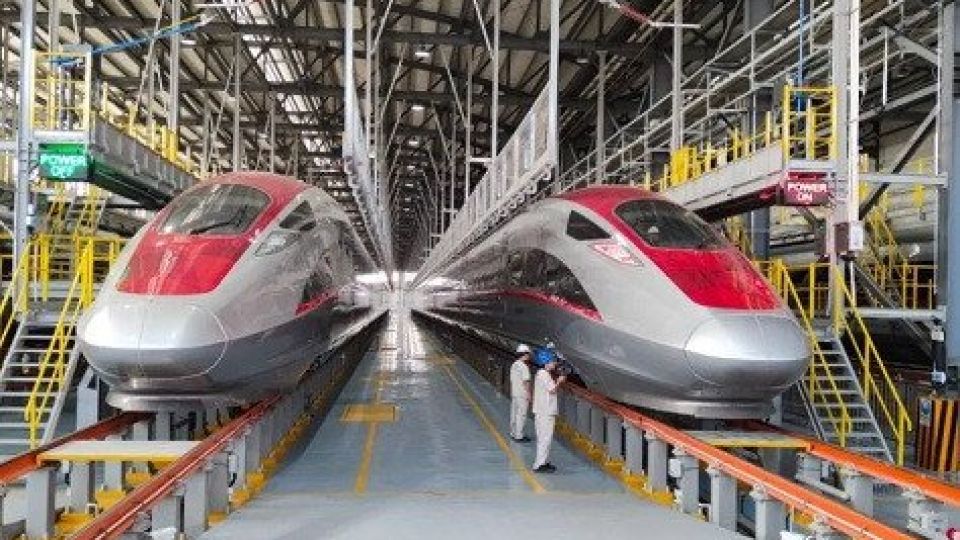September 14, 2023
JAKARTA – Chinese staff from China Railway Group will be responsible for the operation and maintenance of the Jakarta-Bandung high-speed railway in its early years, PT Kereta Cepat Indonesia-China (KCIC), the Sino-Indonesian consortium responsible for the project, has announced.
KCIC president-director Dwiana Slamet Riyadi claimed on Wednesday that the decision was reasonable as the entire system had been built using Chinese technology.
The firm said it would gradually replace foreign staff with local operators in the coming years.
“We will have one-to-one [replacement], including in the operations control center [OCC], technicians and electric [train] drivers. Today, the local staff are still in internships […]. Around 1,100 [KCIC staff] are expected [to take over] in the next one to two years,” Dwiana told reporters.
China Railway Group was involved in the construction of the railway from the project’s early days.
Through its subsidiary China Railway International, it is a shareholder in the Beijing Yawan consortium, which holds 40 percent of KCIC’s outstanding shares, according to State-Owned Enterprises (SOEs) Ministry data.
China Railway Group is also one of three contractors that contributed 70 percent of the engineering, procurement and construction for the project, ministry data shows.
Read also: Japan reluctant to join high-speed rail project, citing need to protect its ‘brand’
KCIC spokeswoman Eva Chairunisa told The Jakarta Post on Sept. 6 that the initial plan had been to send Indonesians to China for three years to learn how to operate and maintain the railway. However, the plan was canceled as a result of the COVID-19 pandemic.
“We needed to think about how the operational target of the high-speed railway could be fulfilled, so we changed the strategy by bringing operation and maintenance expert staff [from China to] here,” she said.
The arrangement, she claimed, was in line with international standards, including that high-speed train conductors should have 10,000 kilometers of conducting experience.
Some experts, however, suggest 100,000 km of conducting experience plus some eight months of training are closer to the global standard.
President Joko “Jokowi” Widodo tested the Jakarta-Bandung high-speed railway for the first time on Wednesday, riding from Halim Station in Jakarta to Padalarang Station in Bandung regency.
The government previously announced plans to open the railway to the public on Oct. 1, but the project has yet to acquire the operating permits required for commercial use.
Jokowi told reporters on Wednesday that he would let the company to decide when it was best to begin commercial operations.
Transportation Minister Budi Karya Sumadi said in a statement on Wednesday that the ministry was still processing the permits but that he expected the operating permit to be issued within a week.
Read also: RI to bring in Chinese staff in rush to launch high speed rail link
The President also said the train tickets would not be subsidized, a reversal of an announcement he made on Aug. 10.
KCIC’s Dwiana said the firm had proposed a ticket price of Rp 250,000 for the premium economy class. The company is also planning a bundle with LRT and feeder train tickets for an additional Rp 50,000.
“For business class and first class, we will use a [floating] pricing system as the segment is different,” Dwiana said.


